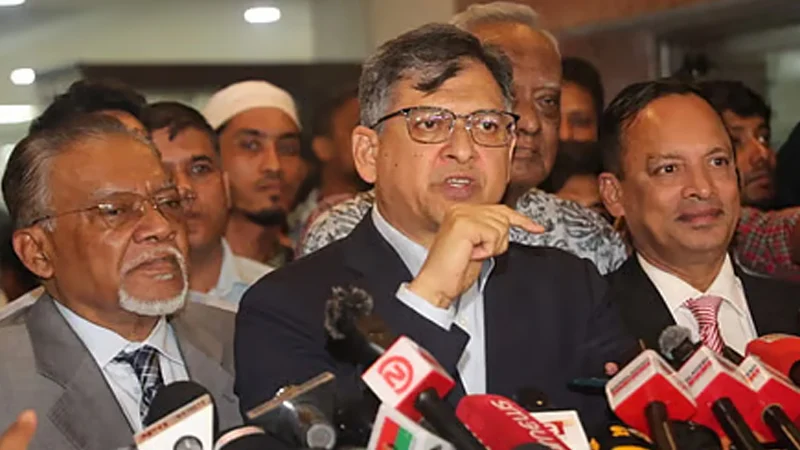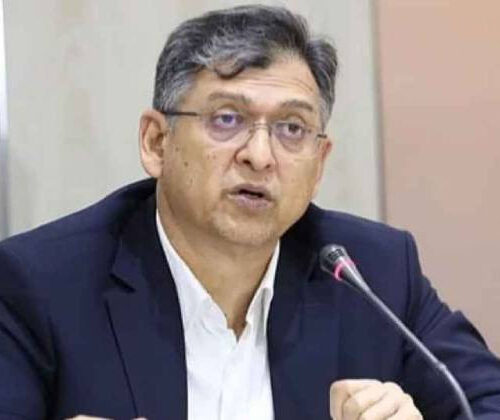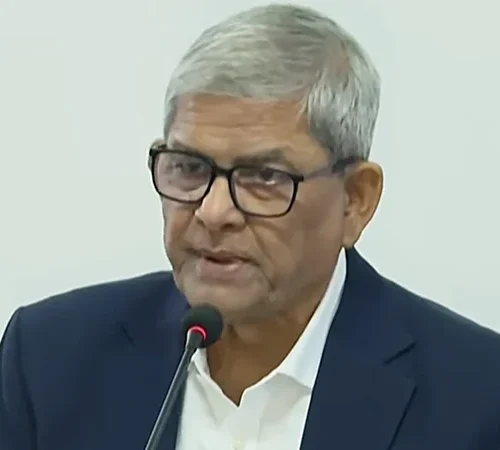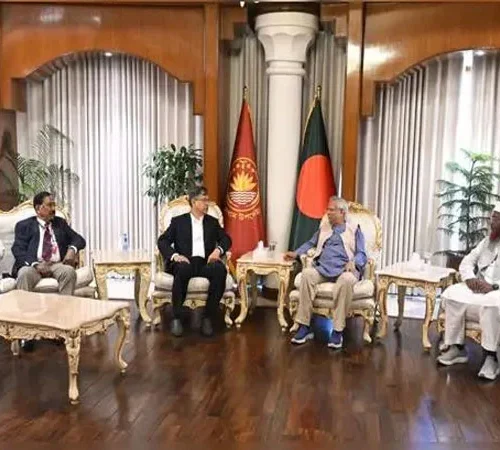Chief Adviser Dr. Muhammad Yunus has urged political parties not to miss the opportunity for reform. He made the call at a meeting of the National Consensus Commission with leaders of 28 political parties and alliances at the Foreign Service Academy in the capital on Monday.
The second phase of the reform dialogue will begin today at the same venue with the parties. On the first day, political parties will discuss Article 70, the caretaker government system, the election of women's seats in the lower house of parliament, and the process of forming parliamentary standing committees.
Sources from yesterday's meeting told Samakal that the political parties reiterated their previous stance on reforms and elections. In the meeting chaired by the chief advisor, BNP demanded elections by December. At least 9 parties including LDP, Gana Adhikar Parishad, CPB, BSD, 12-Party Alliance, Bangladesh JSD, and Biplobi Workers Party have made the same demand.
Many other parties have agreed to hold elections by December. They have made it a condition that reforms must be completed before then. Jamaat-e-Islami has demanded elections between December and April. The National Citizens Party (NCP) has said that the election date should be announced after the July charter is signed. The Islami Andolan, led by Charmonai Pir, has supported the announced schedule, that is, elections between December and June.
Twenty-six of the 34 representatives of political parties and alliances participating in the meeting spoke. The meeting, which began at 4 pm and lasted for two and a half hours, was attended by 26 people.
Don't miss the opportunity.
The chief advisor is himself the chairman of the consensus commission. He said at the beginning of the meeting, 'Here, everyone is determining the real future of Bangladesh; how political parties will guide the reforms, where they will take them.' He said, 'The interim government was given the responsibility of reforms. Initially, six commissions were given 90 days. After that, a separate commission was formed to form a consensus. It has been fruitful with the happy cooperation of the political parties. If everyone sits down, something good will definitely come out. In the end, we will all sign the July Charter together.'
Informing what will happen in the second phase, the Prime Minister said, "We have come close on many issues. Just a little more, another recommendation will be added to the list of consensus; let us not lose this opportunity. Let us bridge the gap and add more to the points of consensus. There will be a national charter. Let us stand proud as a nation. The politics of division is not a creation; for the development and well-being of the country, for unity, so that we can make a wonderful July Charter." In his closing speech, the Chief Advisor said, "The main thing is to maintain unity so that we can enrich the July Charter. Let the nation see what consensus we have reached on those who are here."
The six-month consensus commission was formed on February 12. In yesterday's meeting, the commission's vice-chairman, Professor Ali Riaz, said, "The commission's term ends in August. Before that, the commission is working relentlessly to announce the 'July Charter' in July. We must succeed in fulfilling this sacred responsibility."
Second phase of dialogue today
The Commission sought the views of 38 political parties and alliances on the 166 recommendations of the Constitution, Election System, Judiciary, Public Administration and ACC Reform Commission in March. The Consensus Commission held 45 meetings with the 33 parties and alliances that had expressed their views in the first phase of dialogue between March 20 and May 19. In the first phase, the Commission held separate dialogues with the parties.
Monir Haider, special assistant to the chief advisor who is the coordinator of the commission, told Samakal that the second phase of the dialogue will involve mutual discussions between all political parties and alliances. The commission will help bring the parties closer and establish a consensus.
The commission had recommended relaxing Article 70. MPs will be able to vote independently on other issues except for the money bill. However, no party including BNP, Jamaat, NCP agreed to this. The parties want that MPs will not be able to vote against the party on constitutional amendments and confidence and no-confidence motions. BNP wants that MPs will not be able to vote against the party on national security issues as well. These will be discussed today on the first day of the second phase.
The Electoral Reforms Commission has proposed a caretaker government system for a maximum period of 120 days. BNP wants the court to return to the same system as the 90-day caretaker government formed through the Thirteenth Amendment to the Constitution. Jamaat also wanted the caretaker system of the previous system under the leadership of the last Chief Justice to return. However, the party has agreed to make an alternative proposal to form a caretaker government, keeping the judiciary at a distance. BNP said the commission can make an alternative proposal. NCP has wanted an election-time government to be formed through the proposed upper house of parliament. Some parties, including the Islamic Movement, have also not wanted a caretaker government; they have also wanted an election-time government.
Apart from this, there will be a discussion on women's seats in the parliament today. The commission has proposed that 100 seats in the 400-member parliament will be reserved for women. The elections will be held on a rotating basis. Although most parties including BNP and Jamaat do not agree, the NCP agrees.
What the parties said at the meeting
Sources said that BNP's standing committee member Salahuddin Ahmed, who led the party's delegation, was more flexible yesterday than in the previous days. He demanded an election roadmap from the chief advisor and a vote by December. He reiterated that BNP is not against reforms.
Earlier, leaders of some parties said in their speeches that India is interfering in Bangladesh's internal affairs by talking about early elections. Why is the government not protesting India's statement? Salahuddin Ahmed said in his speech in this regard, 'At one time, the United States also talked about Bangladesh's elections. Back then, no one criticized them. Why should India criticize when they talk about elections?' His statement caused laughter in the meeting. The question was raised as to why BNP is reacting to India's criticism.
According to sources at the meeting, NCP convener Nahid Islam said that the election date should not be announced before the July charter and manifesto. The charter can be signed by July and the election date can be announced on August 5, the one-year anniversary of the student-public uprising.
At the meeting, Legal Advisor Asif Nazrul said that various ministries have already started implementing some of the reform recommendations. Later, political party leaders responded by saying that they had not seen any reforms implemented.
'Reforms can be implemented within a month'
After the meeting, Salahuddin Ahmed said, there is no such reform, which cannot be implemented within a month. The Law Ministry has already made many reforms through ordinances. Except for amending the constitution, the reforms on which all parties agree can also be implemented through ordinances and executive orders. Therefore, I have been able to explain that there is no reason to hold elections after December.
Salahuddin Ahmed said, "The reforms that are urgently needed for the elections need to be identified and implemented through consensus. In the meeting, most political parties proposed elections before December. Now the decision is up to the chief advisor. I hope he will consider it. We think he will play that role impartially as a symbol of national unity. He will not show anger or resentment towards anyone."




